“The congratulations email we got from Fund for Teachers on April 4 about our grant said “This is just the beginning…” Little did we know how true that sentiment was…”
So began the note from 2019 FFT Fellow Kelly Whitaker. She and team mate Sherry Grogan (Monroe Area High School – Monroe, GA) designed their fellowship to collect data and capture 360 video in the Galapagos Islands to inspire scientific field experiences in Georgia that culminate in student presentations at elementary and middle schools intended to pique student interest in biology. Now, photos from their fellowship will also help fund conservation efforts of the Islands.
“My team member, Sherry Grogan, submitted some photos to the photography competition for the Galapagos Conservancy. She was notified this weekend that one of her photos of a lava lizard (above) had received an Honorable Mention and will be in the 2020 calendar.”
- “I imagined learning about the different species would add so much to our lessons, but I never dreamed these “personalities” could be captured in a photograph by me! I loved every creature we met, but especially the ones that ‘greeted’ us!”
- “Each island had a unique landscape based on its age and origin. I especially loved learning about the age of each islands and the stages of primary succession and secondary succession were fun to photograph.”
Read on to see more of “Team Darwin’s” adventures:
- “We are taking 360 pictures from the panga as we tour a mangrove swamp. During this ride, we saw penguins, sea turtles, sea lions, rays, tons of shorebirds.”
- “We were always pushing ourselves to excel outside our comfort zone. One afternoon we asked permission to take 360 video from the crow’s nest. This was the best view of the Galapagos Islands and our new perspective was worth the effort.”
What Changed As A Result of Your Fellowship?
Sherry: “I pushed the limits of my comfort zone routinely while in the Galapagos. I learned to snorkel and engaged with land and sea creatures while shooting 360 videos and taking pictures. Learning in this manner has shown me the importance of capturing student interest in every unit and I feel that I am better equipped to make this happen after the fellowship. Students will surely perform higher in the evolution unit with newly designed lessons of 360 VR experiences and having studied Darwin’s work.”
Kelly: “As my teammate said, ‘We showed up as teachers and we are leaving as students. Our ‘I wonder…’ list is a mile long; our confidence has exploded; our friendship bond is rock solid. The emotional impact was more than I could have imagined. I sat in a panga with six other people with tears rolling down my cheeks at my first sighting of a blue footed booby. I found out that I can’t cry and snorkel at the same time, when I was bobbing in water with penguins.”
- ” I especially loved learning about the age of each islands and the stages of primary succession and secondary succession were fun to photograph.”
- “Hike with tortoises everywhere. These are about 30 years old and our guide said it is quite likely we are the first humans they’ve seen.”
How Do You See Your Teaching Evolving?
Sherry: “I will be entering my 22nd year of teaching next year. This fellowship has completely overhauled my passion for teaching and finding ways to spark interest in my students. I have already tentatively created a plan for involving some portion of the “Galapagos” in each unit. I think this recurring theme will brilliantly help the students learn about such a fascinating place on earth, while also mastering the standards in Biology.”
Kelly: “Our students are going to see our excitement and come up with their own ‘I wonder…’ lists. Our students will be able to ‘visit’ the Galapagos using our 360 video and still shots. They will have a connection to this material that they didn’t have before. We are already looking at the photos we want to exhibit in the elementary schools and middle schools. Our students will have a different level of engagement due to this connection.”
- “All shipmates were eager to get involved in every aspect of our journey. They told us their experience was truly enhanced by seeing the Galapagos through our teacher eyes!”
- “386 steps to the top of Bartolome to take 360 pictures. The iconic picture of Pinnacle Point.”
How will your students learn differently because of your new knowledge or skills?
Sherry: “With all of the footage we shot (i.e., 360 video, photographs, 360 still photos, etc), we have a new approach to many of our units. The photos will come to life in the classroom through the eyes of two very enthusiastic teachers who absolutely cannot stop talking about this trip with friends and family. I learned so much about myself as a teacher, reevaluated my students, and I am prepared to provide a growth opportunity for all students in my room with exciting new material!”
Kelly: “We wrote a grant for mini journals for every student, as well as for field trips to the state park and the Atlanta Botanical Gardens. Sherry’s winning photograph with the Galapagos Conservancy inspired us to have a photo competition among our students. Our media specialist printed the winning photos and our principal ended up paying to frame them! (That’s the water lily picture below).
We also worked in some interdisciplinary activities. We invited the art teacher in to teach a mini-lesson in nature sketching. Our favorite language arts teacher taught a mini lesson on descriptive writing. And our math teacher did a lesson on data collection and also designed a geometry lesson for a putt putt golf course.
Lastly, while writing our grant proposal, we reached out to our mayor. This connection built a relationship and we felt completely comfortable inviting him in to our class to have a forum with our students about environmental decisions in our town. How cool is that? We presented him with the winning photo from the photo competition and he took it to city hall where it was displayed for a month. All because of the connections made during the development of our grant proposal.”
[minti_divider style=”1″ icon=”” margin=”20px 0px 20px 0px”]
Sherry Grogan has taught high school biology for 20 years after spending 8 years as a police officer. Dr. Kelly Whitaker is a special education co-teacher in Biology and Physics. Her previous summer adventures include riding a motorcycle, solo, across thirty states and 16,000 miles; hiking 500 miles across Northern Spain on the Camino de Santiago and climbing Mt. Katahdin. To order the Galapagos Conservatory’s 2020 calendar featuring Sherry’s photographs from her fellowship, click here.
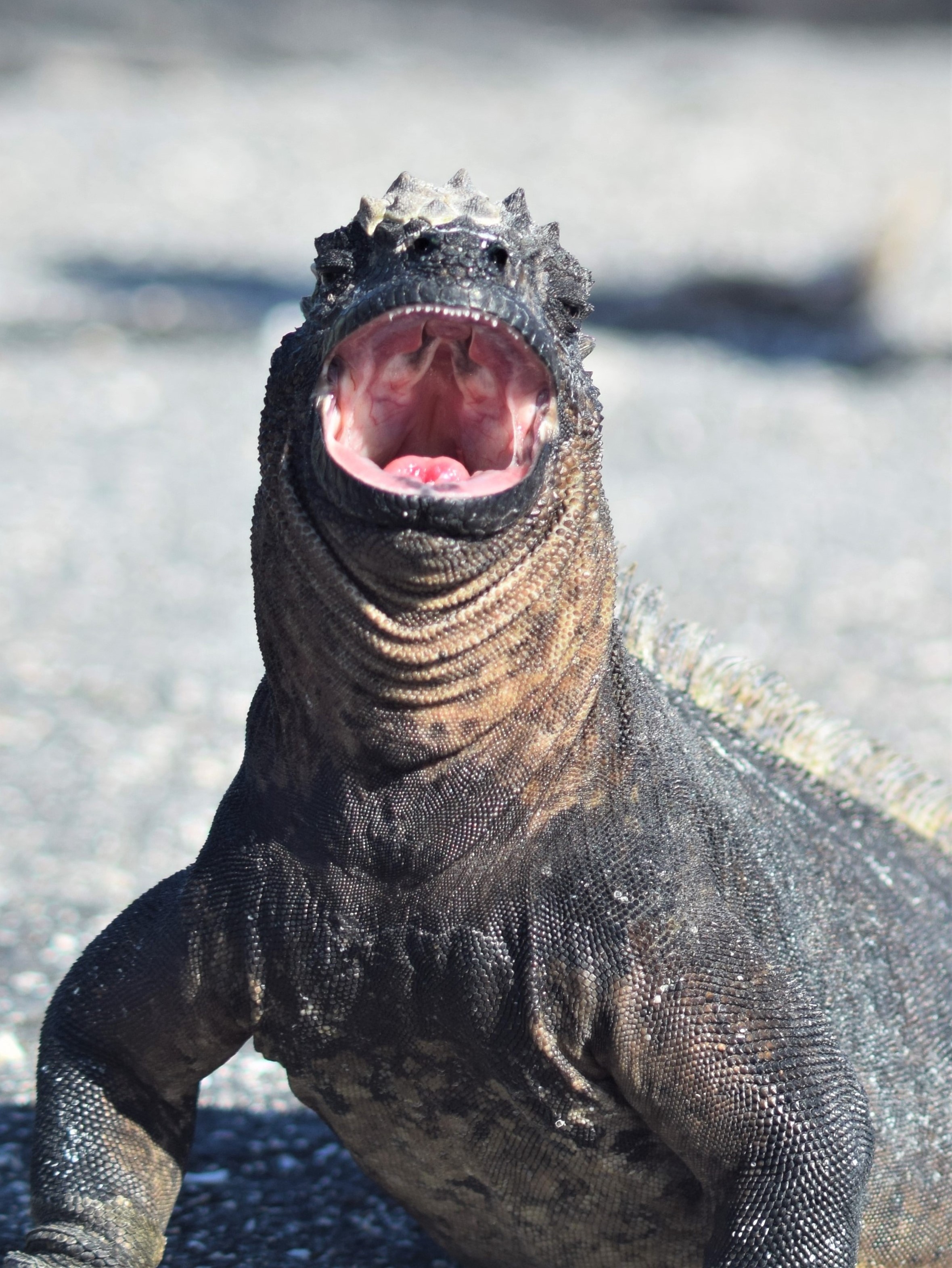

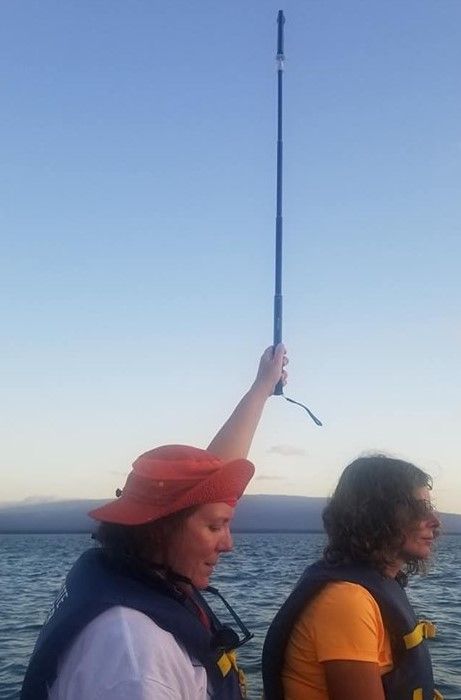
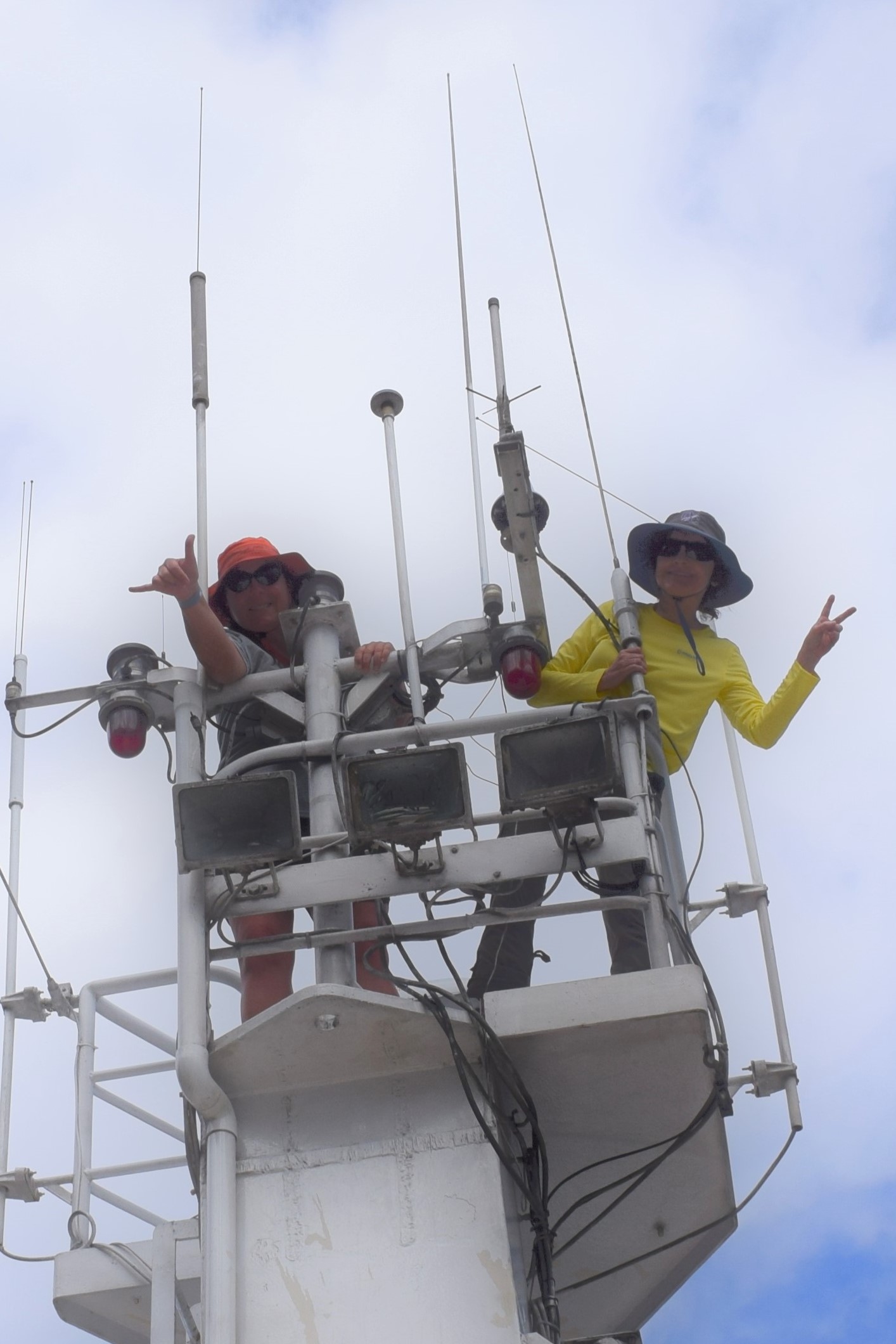
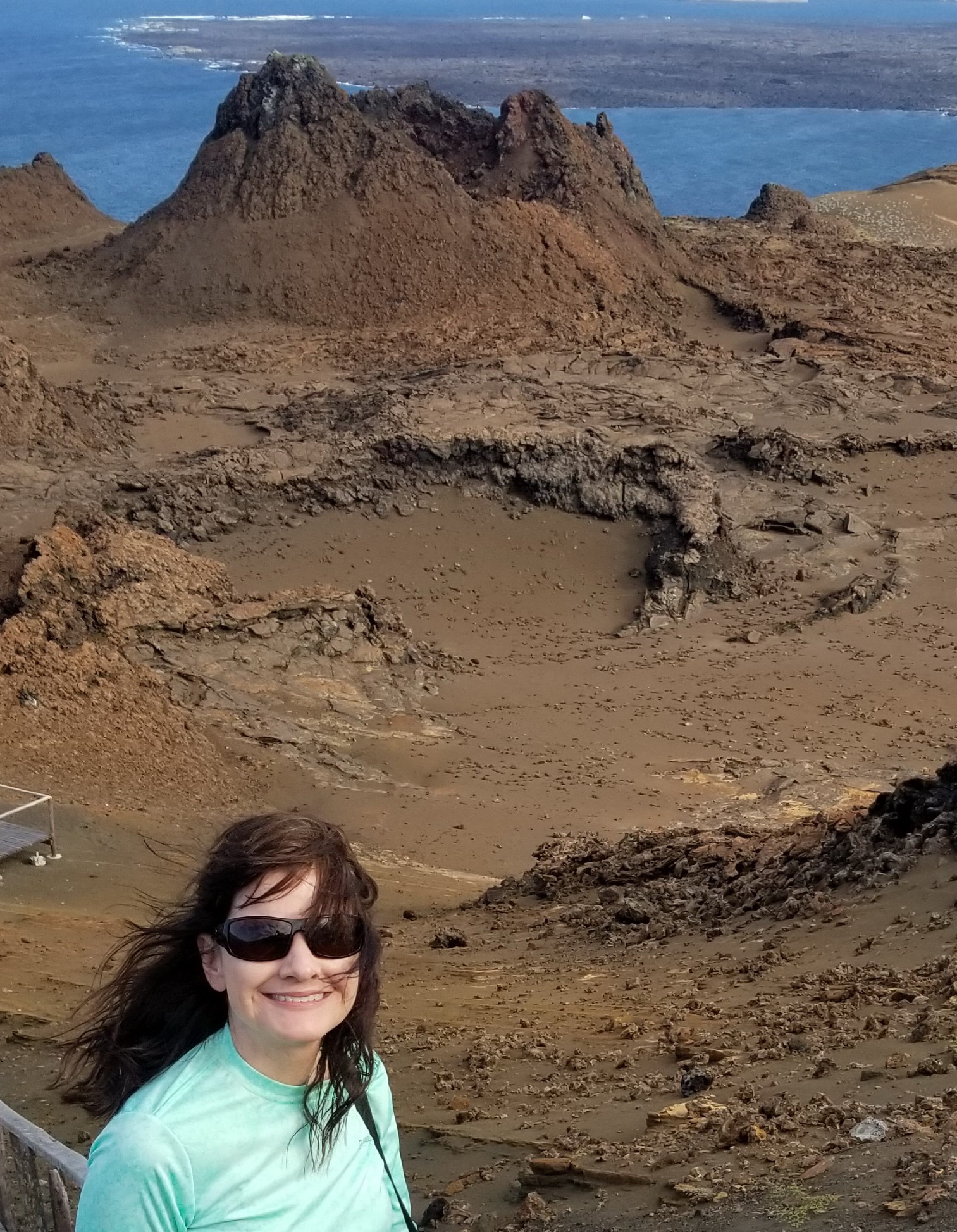
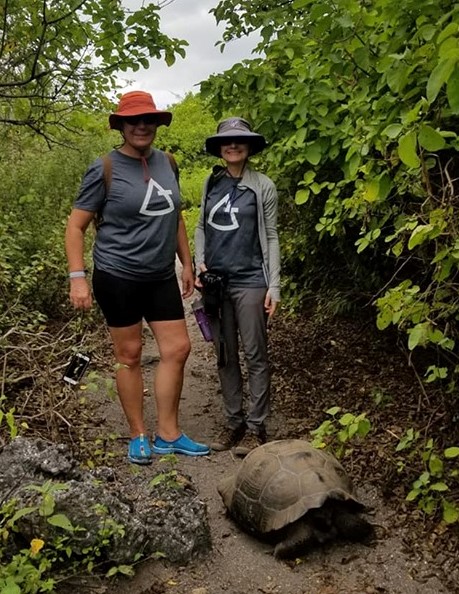
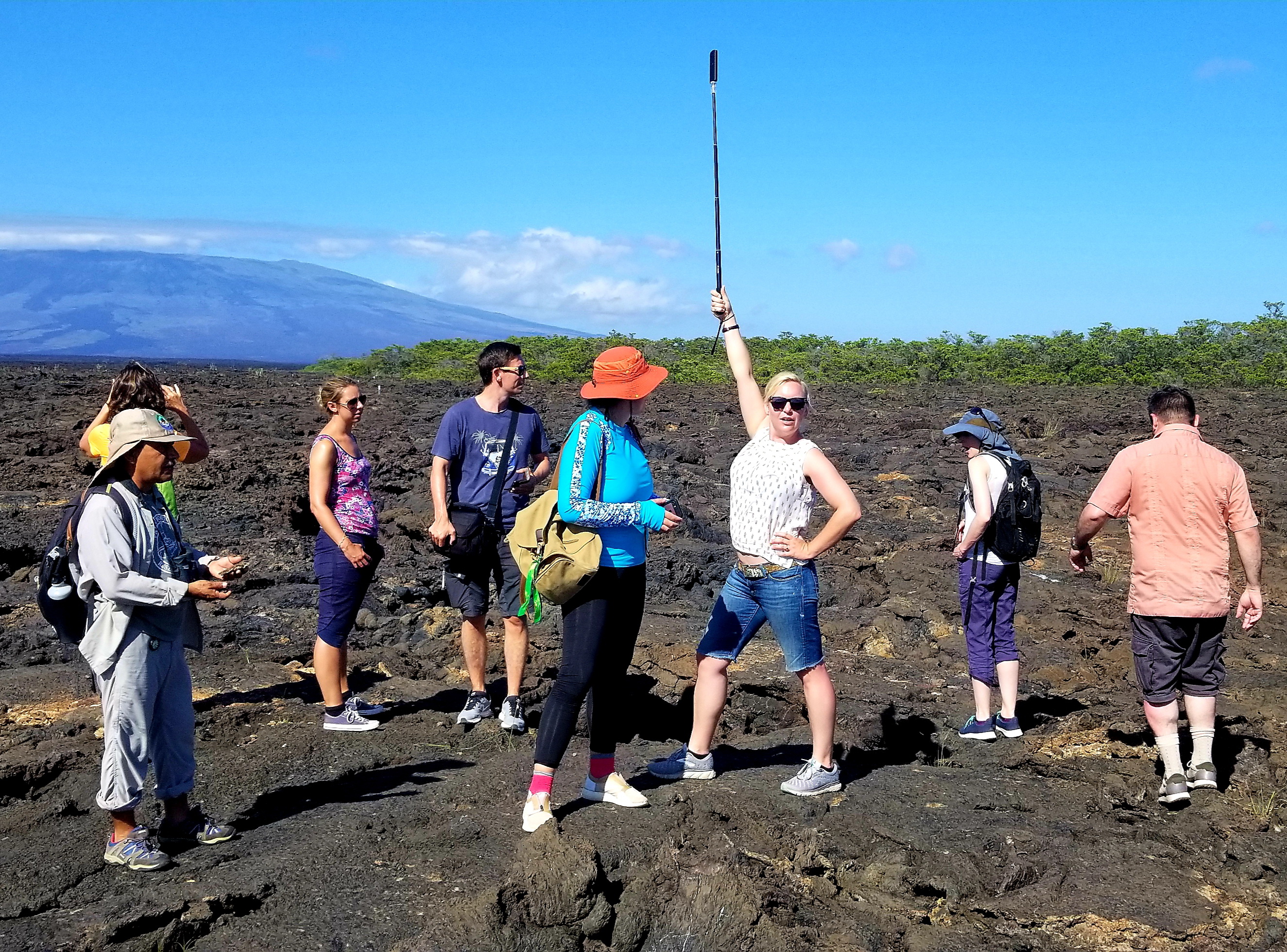
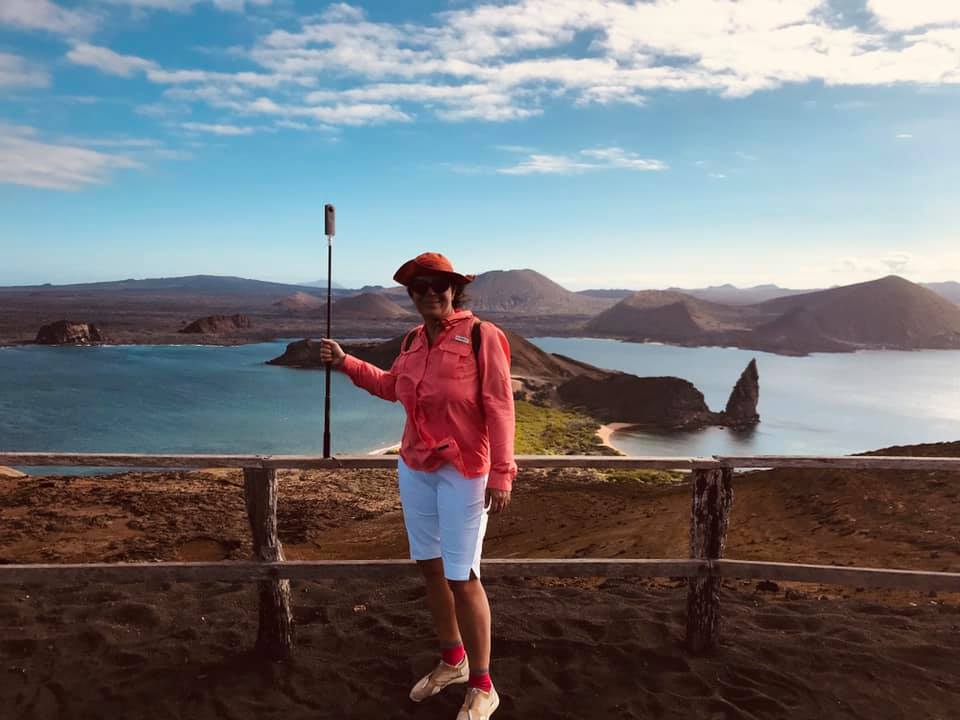
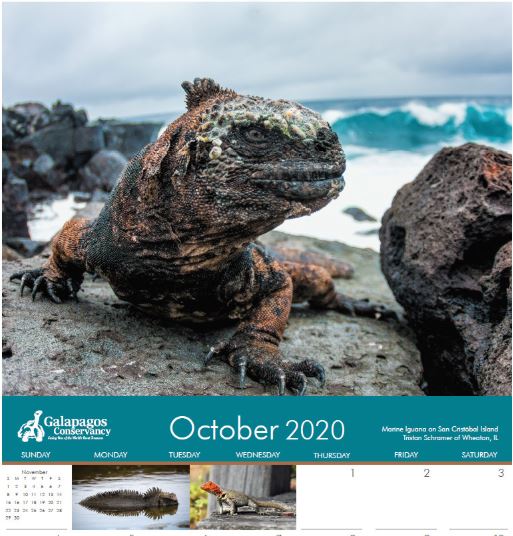
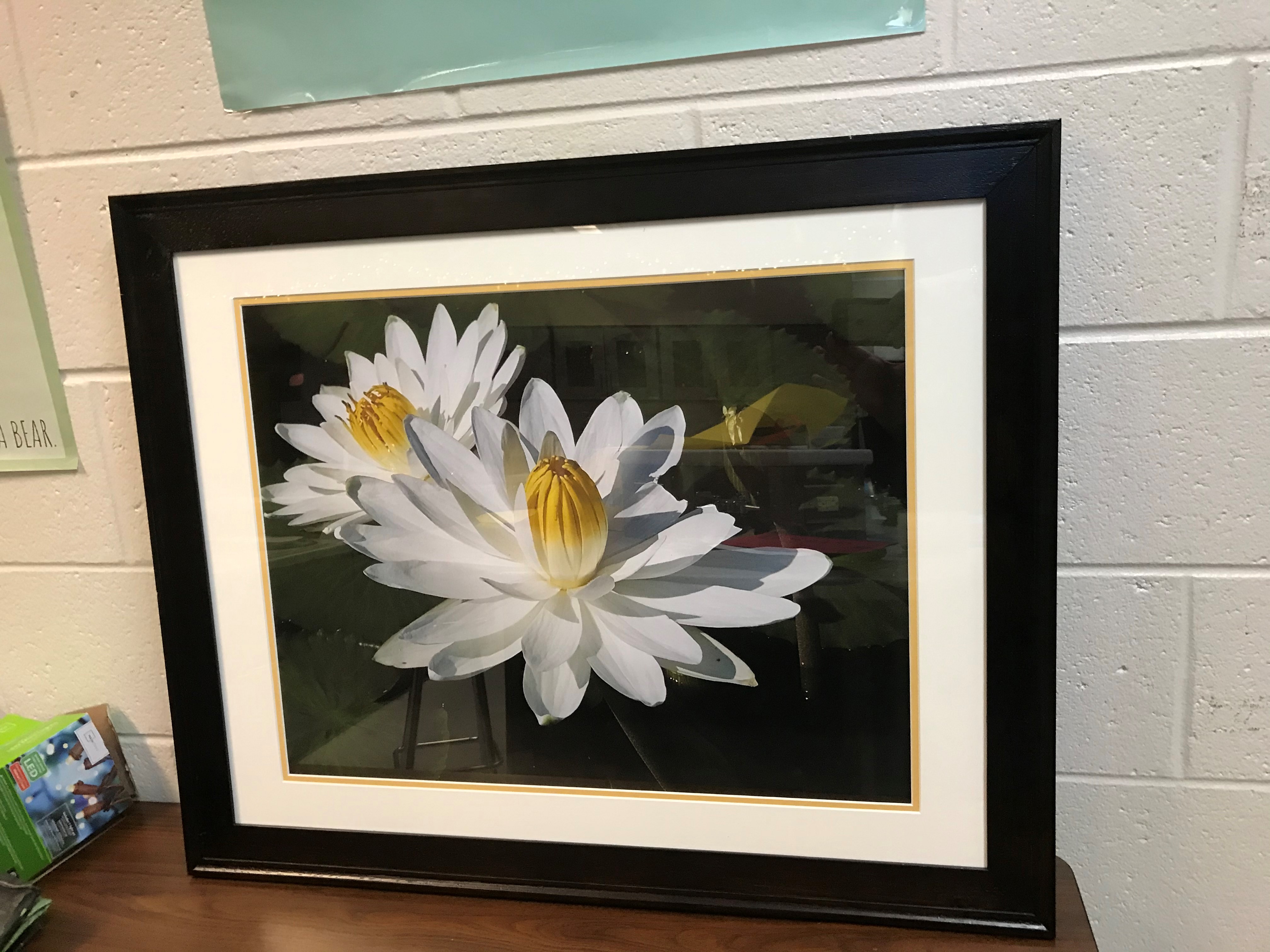

 After serving in the US Navy, Larry became a SCUBA diving instructor, then earned a CDA Certification and worked in a daycare while earning his B.S. in Special Education at the University of Southern Florida. Next, he completed an MS in Education from Cambridge College and earned a Teaching English as a Foreign Language certificate and taught in Laos. Teaching has since taken him to classrooms in Florida, Hawaii, Alaska and, now, to the island of
After serving in the US Navy, Larry became a SCUBA diving instructor, then earned a CDA Certification and worked in a daycare while earning his B.S. in Special Education at the University of Southern Florida. Next, he completed an MS in Education from Cambridge College and earned a Teaching English as a Foreign Language certificate and taught in Laos. Teaching has since taken him to classrooms in Florida, Hawaii, Alaska and, now, to the island of  “I am a high school special education teacher (grades 9-12) in a school whose mission is to cultivates a positive attitude toward life-long learning in an experiential, non-traditional setting,” said Larry. “This fellowship will help me create multi-sensory, high interest learning for special and regular education students, as well as a mixture of students in the clubs that I lead. This approach should level the playing field for the special education students while simultaneously engaging their more advanced peers.”
“I am a high school special education teacher (grades 9-12) in a school whose mission is to cultivates a positive attitude toward life-long learning in an experiential, non-traditional setting,” said Larry. “This fellowship will help me create multi-sensory, high interest learning for special and regular education students, as well as a mixture of students in the clubs that I lead. This approach should level the playing field for the special education students while simultaneously engaging their more advanced peers.”
 [minti_divider style=”1″ icon=”” margin=”20px 0px 20px 0px”]
[minti_divider style=”1″ icon=”” margin=”20px 0px 20px 0px”] Students wielding knives at
Students wielding knives at  Traci worked alongside chefs at
Traci worked alongside chefs at 
